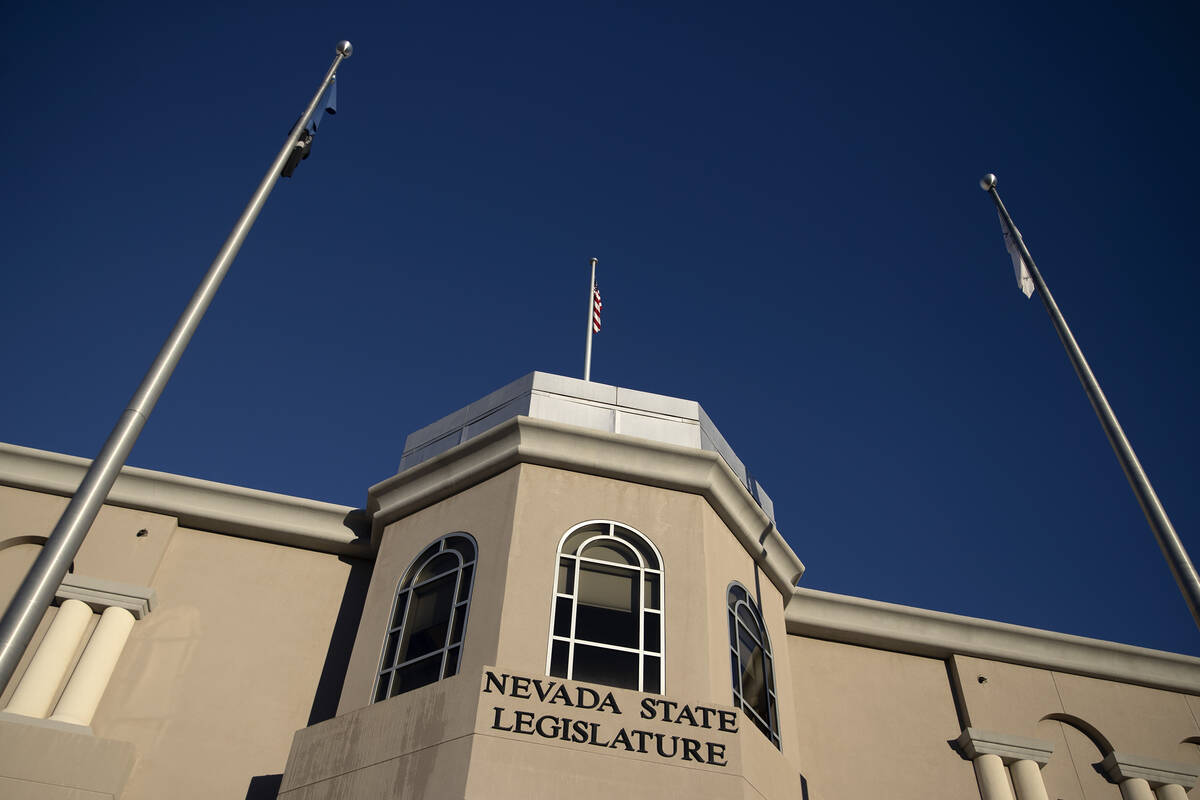5 ways to make the Nevada Legislature more efficient
The Nevada Legislature is in the middle of its 120-day biennial session, with lawmakers busily hearing bills, taking votes and writing amendments.
And there’s no time like the middle of the process to identify ways it can be made better, more efficient or easier.
Here are five things voters could consider to improve the Legislature.
1. Start writing earlier
The state constitution strictly limits sessions to 120 days, but anyone who’s worked in Carson City knows that lawmakers are working all the time. No sooner does a session end than planning for the next one begins, and requests for bills to be heard in 2025 will start coming in shortly after the last gavel falls this year. But often, work on those bills doesn’t start until a few months before the session starts.
But the staff of the Legislative Counsel Bureau could be expanded (and, let’s be honest, better paid) so that work on bill drafts could take place all the time, giving lawmakers a big jump on the next session. That could eliminate the logjam that typically occurs as a session gets underway and deadlines approach. (The deadline for bills to be introduced had to be extended this year.)
2. Collaboration
In many cases, different lawmakers may request the same or very similar bills. Instead of drafting the same legislation, lawmakers should be alerted to the similarity and be asked to co-sponsor a single bill. This would not only free up bill drafters to work on unique legislation, it would also cut down on confusion when two similar bills with different numbers on the same subject wind their way through the process.
3. Concrete, not conceptual, amendments
This session, there have been a large number of “conceptual amendments,” documents that describe what lawmakers want to see in an amended bill, but without the precise language that will actually appear in the law. Any good lobbyist will tell you that’s a sure way to create unintended consequences, or even undercut the intent of a bill. Each committee should have the precise language of each amendment before its members vote.
3. Know when to break the rules
Currently, people presenting bills (usually lawmakers or executive branch officials) have an unlimited time to present their ideas, and answer questions from lawmakers in committees. But people testifying for or against those measures are usually limited to one or two minutes of testimony, and committee chairs may put overall limits (say, 30 minutes or an hour) on testimony. For certain bills, that’s fine. But for overly complex measures, that’s not nearly enough. Lobbyists sometimes get a bad rap, but they are usually experts on their issues and might have valuable information for committees to consider. Committee chairs should suspend those rules on certain bills, so lawmakers can learn more while legislation is being vetted.
4. Speaking of lobbyists
There are strict rules about lawmakers not accepting gifts from lobbyists, including meals. (One lobbyist with logo pens bearing his company name lamented he can’t hand one out to an elected official because the rules are so tight.) But those rules have also cut down on lobbyists’ and lawmakers’ ability to get to know one another in social situations, away from the legislative building and official business, which used to be a key component of working in Carson City. Relaxing the rules to allow for meals, drinks, coffee, or maybe even a pen, might smooth the process without compromising anyone’s ethical or political duties to constituents — provided gifts over a certain amount are properly disclosed. Then again, with the venerable Adele’s restaurant now nothing but a parking lot, Carson City fine dining is mostly limited to the Olive Garden and Chili’s, with the exception of Duke’s steakhouse in the Casino Fandango.
5. Ask the voters for help
The trend in the last 30 years has been to crack down, not lighten up, on the Legislature. Voters have approved term limits, a 120-day hard cap on sessions, a two-thirds supermajority to raise taxes and stricter rules on lobbyists. But things could run better if some of those rules were changed. For example, annual sessions. Even if lawmakers still kept to the 120-day rule, meeting for 90 days in odd-numbered years and 30 days in even-numbered years, budgeting and lawmaking could become a lot more efficient. And paying lawmakers for every day they work — rather than just the first 60 days of a session — might be nice, too.
Contact Steve Sebelius at SSebelius@reviewjournal.com or 702-383-0253. Follow @SteveSebelius on Twitter.












